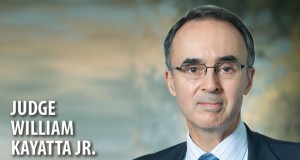A skycap who was fired because his employer said he solicited tips in violation of company policy could bring a retaliation claim asserting that he was actually terminated for his involvement in a Fair Labor Standards Act action against the ...
Read More »W Hotel bankruptcy creates big-ticket question for court
The city of Boston and Prudential Insurance Co. are locked in an acerbic, multi-million-dollar fight at the 1st U.S. Circuit Court of Appeals that will have major implications for New England lawyers involved in large Chapter 11 reorganizations. The case, ...
Read More »Supreme Court hears severance pay case
Is a severance package a form of employment income, or does it constitute a supplemental unemployment benefit? The answer makes a big difference when it comes to income taxes, and it’s now up to the justices of the U.S. Supreme ...
Read More »Employee’s unused vacation days payable after one year
A high school principal did not have to work 10 years before being entitled to payment for her unused vacation time, a Rhode Island Superior Court judge has determined. The defendant School Committee argued that the plaintiff principal’s own employment ...
Read More »Split affects ability to wield ‘hammer’ vs. ex-employees
Violations of the Computer Fraud and Abuse Act are increasingly being alleged by employers in lawsuits against former employees, but with a split in the district of Massachusetts, the ability of a business to hold fraud charges over a defector’s ...
Read More »Proposed tribunal would hear smaller copyright matters
Intellectual property attorneys practicing in the 1st Circuit say they have serious concerns about a proposed statute that would establish a new administrative panel to decide smaller copyright claims. The U.S. Copyright Office recently released a 161-page report recommending the ...
Read More »EEOC’s recent focus may signal forthcoming guidance
The Equal Employment Opportunity Commission’s recent focus on compliance and enforcement issues surrounding laws barring national origin-based job bias has some attorneys wondering if new guidance may be forthcoming. The EEOC held a meeting on Nov. 13 to address the ...
Read More »Report: Firms should target global companies’ business
Corporate legal spending nationwide will remain flat in 2014, but winning the business of large international companies could give law firms a competitive edge in the year ahead, according to a newly released report from a local consulting group.
Read More »Nurse’s $1.2M jury verdict vacated by JNOV ruling
A Massachusetts Superior Court judge has set aside a $1.2 million jury verdict awarded to a nurse who claimed her employer, Massachusetts General Hospital, retaliated against her for taking time off under the Family and Medical Leave Act. The plaintiff ...
Read More »Texas company can’t be sued in R.I. for lost royalties
A Texas-based company could not be sued in Rhode Island for manufacturing allegedly defective fertilizer products that caused a Rhode Island plaintiff to lose royalty payments, a U.S. magistrate judge has found. The defendant company argued that the complaint should ...
Read More » New England Biz Law Update
New England Biz Law Update


